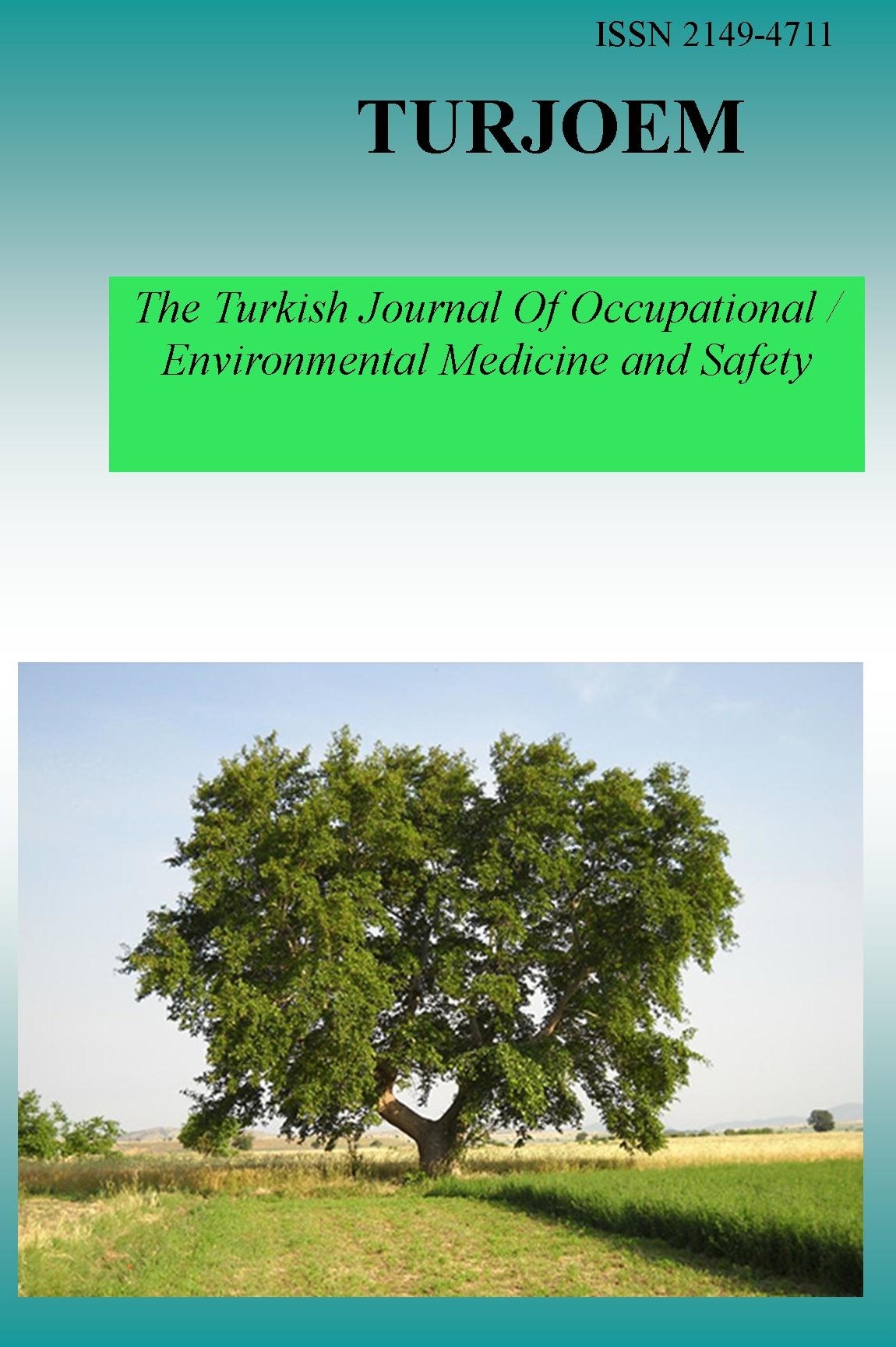HEALTH AND SAFETY HAZARDS IN FLUE DUST RECOVERY
HEALTH AND SAFETY HAZARDS IN FLUE DUST RECOVERY
___
- Derya KOÇAK, Esra KARAMAN
- Centre for Labour and Social Security Training and Research
- ISSN: 2149-4711
- Başlangıç: 2015
- Yayıncı: Engin TUTKUN
AN OVERVIEW TO IMATINIB EFFICACY AND RESISTANCE MECHANISMS
ANTIMICROBIAL ACTIVITY, GENOTOXICITY AND DNA INTERACTIONS STUDIES OF SOME IMINE COMPOUNDS
Pınar GÖK, Neslihan DEMIR, Mustafa YILDIZ, Bahar GÖK
DOES PUERARIN HAVE GENOTOXIC PROPERTIES on MAMMALIAN CELL LINES?
Merve BACANLI, Hatice Gül ANLAR, A. Ahmet BAŞARAN, Nurşen BAŞARAN
METHOD EVALUATION OF EUREKA LABDIVISON’S DRUGS OF ABUSE IN URINE BY LC/MS KIT
Ali Akbar MALEKIRAD, Samira SHAHRJERDI, Marziyeh AHMADI, Mohammad ABDOLLAHI
HEAVY METAL LEVELS IN IRRIGATION WATER IN GREENHOUSE FROM TOKAT, TURKEY
Esma SÖYLEMEZ, Selma ÖZTEKIN, Yalçın KAYA, Gülçin ALTINTAŞ, Mustafa TÜZEN
POSSIBLE EFECTS OF SMOKING at ENZYME and CHROMOSOME LEVEL
. DETECTION FREQUENCY OF SYNTHETIC CANNABINOIDS ‘’BONZAI’’ IN URINE, A FOUR YEAR REVIEW
Feruza TURAN SÖNMEZ, Harun GÜNEŞ, Halit Berk CANGA, Hayati KANDİŞ, Ayhan SARITAŞ
EXPRESSIONS OF APOPTOSIS-RELATED PROTEINS IN COLON CANCER CELLS AFTER HYP-INDUCED PHOTOTHERAPY
Aysun Kılıç SÜLOĞLU, Elif KARACAOĞLU, Güldeniz SELMANOĞLU, Çağatay KARAASLAN
DOPİNG AGENTS: MOLECULAR UNDERSTANDİNG OF THE İMMUNOMODULATORY EFFECTS OF ANABOLİC STEROİDS
